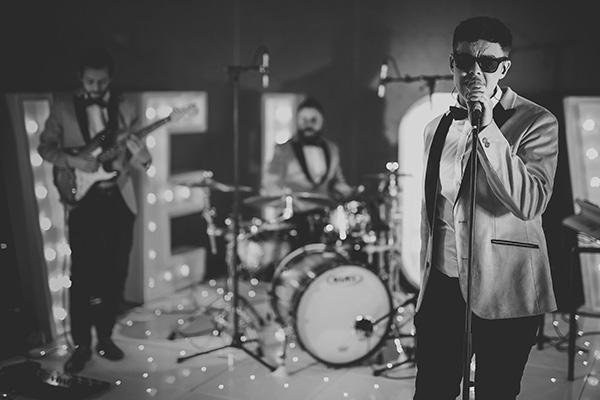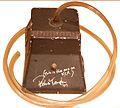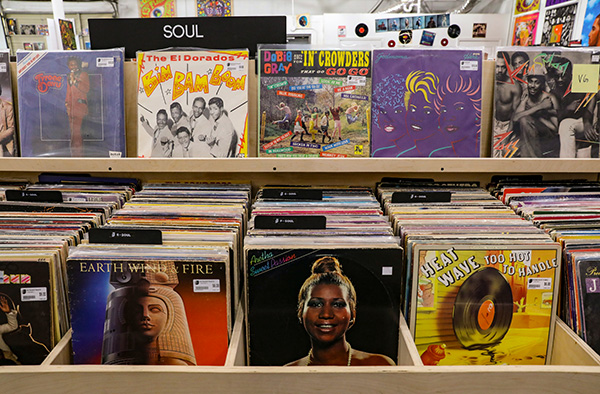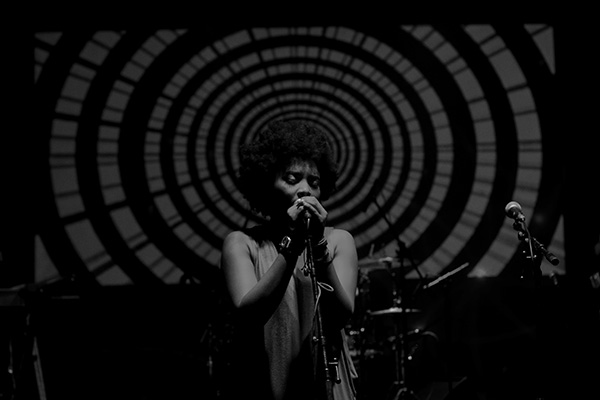Soul/R&B is known for it’s harmonious fusion of heartfelt emotions and smooth grooves that touches the deepest parts of the soul.
Subgenres of Soul / RnB
History of Soul Music
Famous Soul / RnB Artists
Famous Soul / RnB Audio Engineers
Production & Mixing Tips
Subgenres of Soul / RnB
Motown
Motown is a subgenre of Soul/R&B that emerged in the 1960s and was popularized by the Motown record label. It features pop-friendly and rhythmic styles, with artists like The Supremes, The Temptations, Stevie Wonder, and Marvin Gaye dominating the charts
Funk
Funk is a rhythmic and energetic subgenre that emerged in the 1970s. It is characterized by its syncopated bass lines, groovy rhythms, and a fusion of soul, R&B, and jazz influences. Artists like James Brown, Parliament-Funkadelic, and Sly and the Family Stone played significant roles in shaping the funk genre.
Memphis Soul
Memphis soul is a shimmering and sultry style of soul music that originated in Memphis, Tennessee. It is known for its smooth melodies, lush instrumental arrangements, and influential artists like Otis Redding and Aretha Franklin.
Neo Soul
Neo soul is a modern subgenre of contemporary R&B that emerged in the 1990s. It blends classic soul sounds with elements of hip-hop, rock, funk, and electronic music. Artists like Alicia Keys, Lauryn Hill, John Legend, and Frank Ocean are associated with this subgenre.
Progressive Soul
The progressive soul movement of the early 1970s expanded the musical and lyrical boundaries of R&B. Artists like Curtis Mayfield, Marvin Gaye, and Stevie Wonder led this movement, pushing the genre’s boundaries and creating innovative and socially conscious music.
Psychedelic Soul
Psychedelic soul, also known as “black rock,” emerged in the late 1960s as a blend of psychedelic rock and soul music. It paved the way for the mainstream emergence of funk music. Artists like Jimi Hendrix, Sly and the Family Stone, and Isaac Hayes were pioneers of this subgenre.
Contemporary R&B
Contemporary R&B is a broad subgenre that encompasses modern R&B music. It incorporates elements from various styles, including soul, pop, hip-hop, and electronic music. Artists like Beyoncé, Rihanna, The Weeknd, and Bruno Mars have achieved great success in this genre.
History of Soul Music
Soul music emerged in the United States in the late 1950s and early 1960s, combining elements of gospel music, rhythm and blues (R&B), and jazz. It was born out of the rich musical heritage of African American communities, particularly in the southern states.
Soul music was a powerful expression of the African American experience and became a soundtrack for the Civil Rights Movement, reflecting the struggles, hopes, and aspirations of the time. Artists like Ray Charles, Sam Cooke, and James Brown played pivotal roles in shaping the genre, infusing it with their distinctive styles and vocal prowess.
The roots of soul music can be traced back to the gospel music of African American churches, where passionate vocals and emotional performances were commonplace. This fervent energy and heartfelt expression were transferred to secular music, giving birth to soul. Soul music also drew inspiration from the rhythm and blues styles of the 1940s and 1950s, incorporating elements like call-and-response patterns, bluesy melodies, and infectious rhythms.
The genre gained mainstream popularity in the 1960s, with the rise of Motown Records and its roster of talented artists like Stevie Wonder, Diana Ross and the Supremes, and Marvin Gaye. These artists brought soul music to a wider audience, infusing it with catchy pop sensibilities and polished production techniques.
Throughout the decades, soul music continued to evolve, giving birth to subgenres like funk, neo soul, and contemporary R&B, while remaining a powerful and influential force in the music industry.

The Gear That Shaped Soul Music


Talkbox
The talkbox is an effect that allows a musician to modify the sound of an instrument by changing the shape of their mouth and “vocalizing” the instrument’s output into a microphone. This creates a unique and expressive sound that adds character and depth to the music. The talkbox has been used in various genres, including soul and R&B, to create distinctive vocal effects and add a touch of funkiness to the music.


Piano
The piano is the most influential instrument in shaping soul music. Its versatility, expressive capabilities, and ability to provide both harmonic and melodic accompaniment have made it a staple in the genre. Artists like Ray Charles, Stevie Wonder, and Aretha Franklin have showcased the piano’s power and soulfulness in their music, incorporating its rich tones and melodic lines to create emotional and captivating performances. While other instruments also contribute to the soul music sound, the piano stands out as the key instrument that has had a profound influence on the genre’s development and evolution.


Fender Rhodes Electric Piano
The Fender Rhodes electric piano is another influential gear piece that has left its mark on soul and R&B music. Its distinctive sound, characterized by its warm and mellow tones, has been featured in countless soul and R&B recordings. Artists like Stevie Wonder, Herbie Hancock, and Marvin Gaye have used the Fender Rhodes to create soulful and melodic piano parts that have become iconic in the genre.


Famous Soul / R&B Artists
Throughout the decades, soul and R&B music has been enriched by a multitude of iconic artists.
In the 1960s, Aretha Franklin, Otis Redding, and Sam Cooke captivated audiences with their powerful voices and unforgettable hits.
The 1970s brought Stevie Wonder, Marvin Gaye, and Diana Ross, who infused the genre with funk and soul.
The 1980s witnessed the rise of Michael Jackson, Whitney Houston, and Prince, who pushed boundaries and created groundbreaking music.
In the 1990s, Mary J. Blige, Boyz II Men, and TLC reinvigorated soul and R&B with their unique styles.
Moving into the 2000s and 2010s, artists like Alicia Keys, Usher, Beyoncé, and Bruno Mars continued to shape the genre with their distinctive sounds and powerful performances.
In the 2020s, artists like H.E.R., Anderson .Paak, and The Weeknd are carrying the torch, infusing soul and R&B with modern influences and captivating listeners with their talent and creativity. These artists, among many others, have left an indelible mark on soul and R&B music, ensuring its enduring popularity and influence.
Three Sonic Qualities of Soul Music
Rhythm and Groove
Soul and R&B music are known for their infectious rhythms and grooves. These genres often feature prominent drum beats, basslines, and rhythmic patterns that create a strong foundation for the music. The rhythm section, including drums, bass, and sometimes percussion, plays a crucial role in driving the songs forward and creating a sense of groove and movement.
Vocal Expression
Soul and R&B music place a strong emphasis on vocal expression. Artists in these genres often showcase their vocal prowess, delivering passionate and emotive performances. The vocals can range from smooth and soulful to powerful and dynamic, allowing the artists to convey a wide range of emotions and connect with the listeners on a deep level.
Melodic and Harmonic Elements
Soul and R&B music incorporate melodic and harmonic elements that contribute to their distinctive sound. These genres often feature catchy melodies that are memorable and easy to sing along to. Harmonically, soul and R&B music may draw from gospel, blues, and jazz influences, incorporating rich chord progressions and lush harmonies that add depth and complexity to the songs.
Famous Soul / R&B Audio Engineers
Castle
Castle is an audio engineer based in Chicago who has established himself as a go-to person for R&B and hip-hop artists in the area. He has worked with various artists, including OTF’s Sydny August, and has a primary focus on R&B and hip-hop production, mixing, and engineering. Castle’s expertise and experience in the genre make him a sought-after professional in the Chicago music scene.
Blake La Grange
Blake La Grange is a Grammy Award-winning audio engineer who specializes in mastering. He has worked with numerous R&B and soul artists, contributing to the final polish and sonic quality of their music. With a background in recording arts and being taught by Grammy Award-winning engineers, La Grange brings his expertise to the mastering process, ensuring that the music sounds its best across various platforms and formats.
Miguel Dias
Miguel Dias is a London-based producer, audio engineer, and sound designer who has worked in the R&B and soul genres. With an eclectic taste in music and influences ranging from classical to hip-hop and jazz, Dias brings a diverse range of styles and tones to his work. He has contributed to the production, mixing, and mastering of R&B and soul tracks, infusing them with his unique creative approach.


Three Mixing & Mastering Tips for Soul / RnB
Fine-tune the mix
A quality mix is essential for a successful mastering process. Spend time balancing the volume levels, defining frequency spaces for each instrument, and ensuring a clear and compelling vocal performance. In soul and R&B music, vocals often carry the emotional weight of the song, so pay attention to their clarity and presence in the mix
Use EQ and compression on vocals
Vocals play a crucial role in soul and R&B music. When mastering vocals, make subtle EQ adjustments to ensure they sit well in the mix. Boosting the high-mid frequencies can add clarity, while cutting the lower frequencies can prevent muddiness. Additionally, use compression to even out the vocal dynamics and maintain a consistent level. Moderate attack and release times are often suitable for soul and R&B vocals.
Shape the tone and control dynamics
Equalization (EQ) is a powerful tool for shaping the tone, clarity, and presence of vocals in soul and R&B music. Use EQ to remove unwanted frequencies, boost those that make the vocals stand out, and create space for other instruments in the mix. Additionally, employ compression to control the dynamics, level, and consistency of the vocals, ensuring a smooth and balanced sound.
Why Hire a Professional Audio Engineer or Producer for Mixing and Mastering Soul / RnB?
While it is possible to learn and do mixing and mastering soul music yourself, hiring a professional can provide a level of expertise, objectivity, and efficiency that can greatly benefit your soul / R&B music production.
Expertise and Experience
Professional audio engineers specializing in soul/R&B music have extensive knowledge and experience in working with the genre’s unique sonic characteristics. They understand the nuances of the genre and can bring out the best in your music.
Quality Sound
A professional audio engineer can ensure that your soul/R&B tracks have a polished and professional sound. They have the technical skills and tools to enhance the clarity, balance, and overall sonic quality of your music.
Creative Collaboration
Working with a professional audio engineer allows for creative collaboration. They can provide valuable input, suggestions, and fresh perspectives to enhance your music. Their expertise can help you achieve the desired artistic vision for your soul/R&B tracks.
Industry Standards
Professional audio engineers are well-versed in industry standards and best practices for mixing and mastering soul/R&B music. They can ensure that your tracks meet the quality expectations of listeners and industry professionals.
Time and Efficiency
Hiring a professional audio engineer saves you time and effort. They have the skills and tools to efficiently handle the technical aspects of mixing and mastering, allowing you to focus on your creative process and other aspects of your music career.